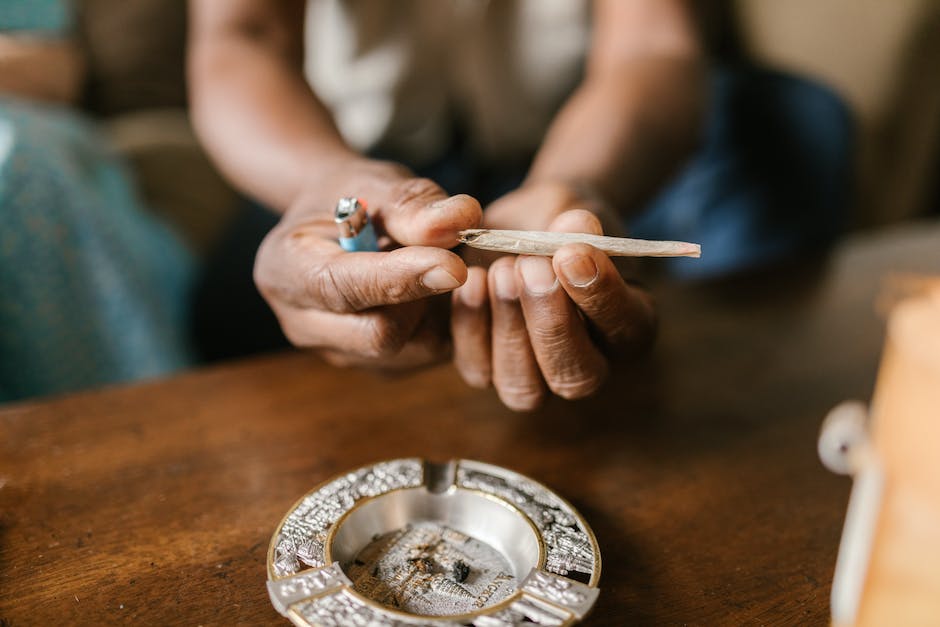Legalizing cannabis has been a topic of conversation and debate across the United States for many years. Recently, many states have taken steps towards legalization, both for medical and recreational purposes. While the benefits of the drug for medical purposes have been well documented, the broader implications for society as a whole have yet to be fully explored. Specifically, there is a growing body of evidence that suggests that legalizing cannabis could be a catalyst for social equity and inclusion. This article will explore this concept further, discussing the ways in which cannabis legalization could level the playing field for marginalized communities, as well as the potential challenges that may arise.
Historical context of cannabis criminalization and its disproportionate impact on marginalized communities (particularly Black and Brown communities)
The criminalization of cannabis has a deep-rooted history in America that dates back to the early 1900s where it was demonized and unfairly linked to Mexican immigrants and Black jazz musicians. In 1970, cannabis was listed as a Schedule 1 drug under the Controlled Substances Act, categorizing it as having no recognized medical use and a high potential for abuse, ranking it alongside heroin and cocaine. This label paved the way for draconian drug policies that allowed for the disproportionate policing, prosecution, and imprisonment of Black and Brown communities for non-violent drug offenses, particularly low-level cannabis offenses. Over the past four decades, this has resulted in the mass incarceration of these communities and the creation of a criminal justice system that is inherently biased against them. The legalization of cannabis presents a unique opportunity to address the historical injustices caused by criminalization and move towards social equity and inclusion for all.
Evidence of the positive effects of cannabis legalization in addressing social inequities, such as increased access to jobs and economic opportunities for marginalized individuals

Legalizing cannabis has proven to be a powerful tool in promoting social equity and inclusion. Evidence suggests that legalization has led to increased job opportunities not only in the cannabis industry but also in related fields such as marketing, transportation, accounting, and legal services. This has provided a pathway for individuals from marginalized communities to break into well-paying roles and contribute positively to the economy. Furthermore, revenue generated from the cannabis industry can be reinvested back into communities that have been disproportionally affected by the war on drugs, funding initiatives such as education, healthcare, and workforce development. In short, the legalization of cannabis has opened doors for marginalized individuals to participate in the economy and has the potential to drive meaningful improvements in social equity and inclusion.
Discussion of how cannabis legalization can help to reduce the racial disparities in drug arrests and incarceration rates
:
The criminalization of cannabis has contributed to the racial disparities in drug arrests and incarceration rates in the United States. Despite similar usage rates across racial lines, black Americans are nearly four times more likely to be arrested for marijuana possession than their white counterparts. These arrests not only perpetuate harmful stereotypes about communities of color but also result in a cycle of poverty and disenfranchisement.
Cannabis legalization can play a pivotal role in reducing these disparities and promoting social equity and inclusion. By decriminalizing cannabis and creating a legal marketplace, we have the opportunity to address the harm caused by the War on Drugs and create a more just and equitable society. Legalization also allows for the expungement of criminal records for nonviolent cannabis offenses, providing opportunities for individuals to reintegrate into society and access better economic opportunities.
Moreover, legalizing cannabis can foster entrepreneurship and small business growth, particularly among communities that have been disproportionately impacted by the War on Drugs. By offering licenses and creating incentives for minority-owned businesses, we can ensure that the benefits of the cannabis industry are spread more broadly, creating jobs and economic opportunities in underserved areas.
In conclusion, cannabis legalization represents an opportunity for social progress and equity. By acknowledging the harm caused by the War on Drugs and creating a legal marketplace, we can promote racial justice and inclusion while also spurring economic growth and innovation.
The potential for cannabis legalization to generate tax revenue that can be used to invest in marginalized communities, such as funding education and healthcare programs
Legalizing cannabis can open up a significant opportunity for generating tax revenue that can be utilized to support the development of underprivileged communities. By implementing a robust taxation system, the government can generate substantial revenue from legal marijuana sales that can be utilized for the betterment of society as a whole. Such funds can be utilized for initiatives like developing education, healthcare, and anti-poverty programs.
Additionally, legalization can also create new job opportunities, particularly in regions where economic opportunities may be scarce. This can be particularly helpful for individuals who have previously been impacted by the criminalization of cannabis, thus creating pathways for empowerment, self-reliance, and upliftment.
By investing a portion of the revenue generated from cannabis sales back into marginalized communities, we can pave the way for long-term social equity and inclusion. With the right policies, including progressive tax schemes and equitable infrastructure and investment in public systems, cannabis legalization can lead the way towards creating a more just and equitable society that takes into consideration the needs of all its citizens.
Examination of the current state of cannabis legalization policies in the US and its impact on social equity and inclusion

.
Currently, 36 states in the US have legalized cannabis for medical purposes and 15 states have legalized it for both medical and recreational use. However, the impact of these legalization policies on social equity and inclusion has been mixed.
In states where only medical cannabis is legal, there are often limited opportunities for minority-owned businesses and individuals with past cannabis-related convictions to enter the market. This can perpetuate existing inequalities and limit the potential benefits of legalization for disadvantaged communities.
On the other hand, states that have legalized recreational cannabis use have implemented equity programs to address these issues. For example, California’s Equity Program provides assistance to individuals with past cannabis convictions and those living in communities disproportionately affected by the War on Drugs.
While such programs are a step in the right direction, they must go further to truly promote social equity and inclusion. This includes ensuring that minority-owned businesses have access to financing and licensing opportunities, and that individuals with past convictions are not automatically excluded from participating in the legal cannabis industry.
Legalizing cannabis has the potential to be a catalyst for social equity and inclusion, but only if policies are implemented in a way that addresses existing disparities and provides opportunities for all individuals and communities to benefit.
Discussion of the importance of taking a reparative justice approach to cannabis legalization, including expungement of prior cannabis-related offenses and reinvestment in marginalized communities affected by drug criminalization
One important aspect of legalizing cannabis is the need to address the social inequalities and injustices caused by decades of drug criminalization. With the majority of cannabis-related arrests being of people of color, it is crucial to take a reparative justice approach to marijuana legalization.
This approach involves expunging the criminal records of those convicted of non-violent, cannabis-related offenses and giving them a fair chance at rebuilding their lives. It also entails the reinvestment of cannabis taxes into communities affected by the war on drugs, such as those with high poverty rates and lack of opportunities.
By taking this approach, we can work towards creating a more inclusive and equitable society. Legalization alone will not solve the deep-rooted issues caused by drug criminalization, but it is a step towards a more just and fair future.
Critiques of the current cannabis industry’s lack of diversity and inclusion and proposals for increasing diversity in ownership and employment in the industry
.
Currently, the cannabis industry has been criticized for its lack of diversity and inclusion. The industry is predominantly controlled by white-owned businesses, excluding people of color and other marginalized groups. This lack of diversity is a result of historical injustices that prevent people of color from accessing the resources and capital necessary to establish successful cannabis businesses.
To address the issue of inequity in the cannabis industry, proposals have been made to provide opportunities for those who have been impacted by the War on Drugs, disproportionately African American and Latinx populations, to enter the industry on an even playing field. These proposals involve policies such as equity programs that offer resources and assistance to social equity applicants, reducing barriers to entry in licensing and encouraging reinvestment in communities most affected by drug law enforcement.
One helpful step towards increasing diversity is for established cannabis businesses to begin actively recruiting staff and executives from underrepresented backgrounds. This includes building relationships with community organizations and creating internships and job training programs aimed at recruiting and preparing populations that have typically been underserved.
Overall, proposals for increasing diversity in the cannabis industry aim to address past injustices, prioritize social equity and inclusion, and provide more diverse role models in leadership in the industry. It’s a long-term endeavor, but ultimately the success of the cannabis industry depends on creating a more inclusive society that recognizes the valuable contributions of all people.
Analysis of the role that public perception and stigma around cannabis plays in the fight for social equity and inclusion

The public perception and stigma around cannabis have long been regarded as stumbling blocks in the fight for social equity and inclusion. For many years, cannabis was viewed as a dangerous drug associated with criminal activity and was illegal for both medical and recreational use. This led to a disproportionate number of people from marginalized communities, such as African Americans and Latinos, being arrested and incarcerated for cannabis-related offenses.
However, recent years have seen a shift in public perception, with many states legalizing cannabis for medical and/or recreational use. This has led to a growing awareness of the social and economic benefits that come with legalization, including increased tax revenue, job creation, and the ability to redirect law enforcement resources towards more pressing issues. Moreover, proponents of legalized cannabis argue that removing the criminalization of cannabis can go a long way in promoting social equity and inclusion.
Furthermore, legalization of cannabis can help remove the stigma associated with it and promote education about its various uses and benefits. This, in turn, can help to normalize cannabis use and remove the negative stereotypes that have circulated for decades. This could lead to a greater willingness among individuals from marginalized communities, who have been disproportionately impacted by the war on drugs, to seek treatment for their medical conditions using cannabis.
In conclusion, the role of public perception and stigma around cannabis cannot be overlooked in the fight for social equity and inclusion. With the growing acceptance of legalized cannabis, there is an opportunity to use it as a catalyst for positive change, with the ability to promote social equity, inclusion, and reduce the negative impacts of the war on drugs.
